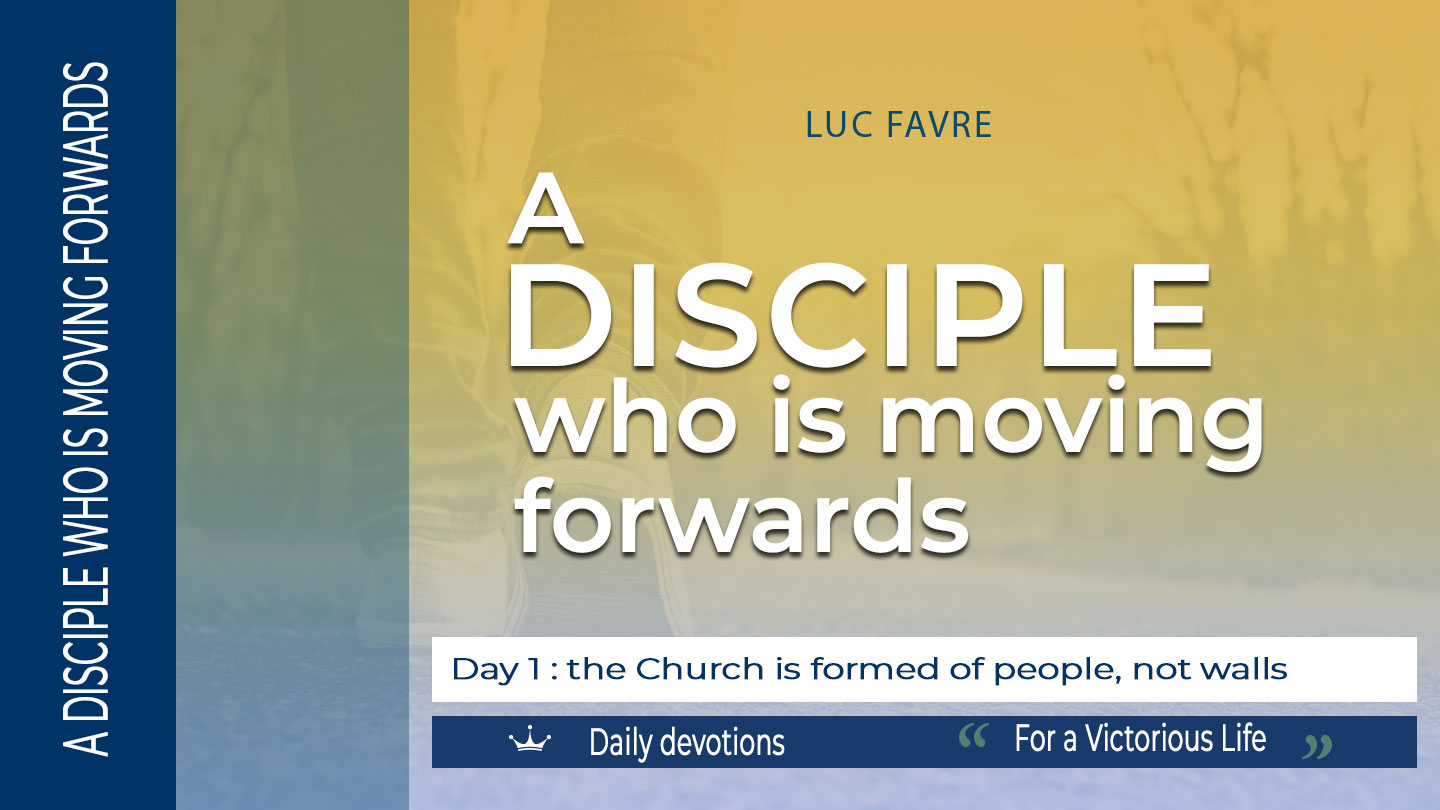The Church - Disciples Who Grow and Multiplyનમૂનો


The word “church” comes from the Greek ekklesia, which means “called out from”. The Church is formed of people, not walls or buildings.
REFLECTIONS:
Read Matthew 16:18 and Acts 2:42-47 and take some time to answer the following questions:
➤How would you define the Church of Jesus Christ? Why?
➤Based on these passages, what do you understand about the Church?
CONTENT:
Jesus mentions the term “church” only twice in the Gospels (cf. Matthew 16:18 and 18:17), without explaining the meaning of the word. This shows us that it was something obvious for His contemporaries. For Greeks living in the time of Jesus, the ekklesia was a gathering of people called from within the city (they generally had to be citizens who had served in the army for two years). This democratic assembly made decisions for the city. Later, those called up would become the city council, alongside the king. Their role was to judge and extend the kingdom. God chose this model for His Church. The Church, therefore, is an assembly, or a council gathered around its King. It is not a building!
Christ therefore sees His Church as a multitude that He called out of the world to be His people (cf. Acts 15:14) to be sent into the world to extend His Kingdom (see John 17:16-18). Jesus came to deliver us from the bondage of sin and bring us into His Kingdom. This means that His Church is made up of all the men, women and children who have ever lived (past, present and future) who have acknowledged Jesus as their Lord and Saviour. This is the universal Church, which manifests itself here on earth mainly through local churches. Each local church is a group of disciples who come together to carry out the Biblical mission by doing what is necessary to allow His Kingdom to come and His will to be done.
The way we use the word “church” therefore no longer matches how it was originally used in the New Testament, thus distorting our understanding. The Church is a people, a nation, Christ’s family and body, etc. Unfortunately, today, the word “church” is generally seen as an organization, with a pastor, a building and members, or in the sense of the activities that take place in the building, but it is actually a community. In the New Testament, the word sometimes refers to the universal Church, but otherwise, either it refers to all the communities of believers in a city or region, or it is used as part of the phrase “the church that meets at their house” (in reference to the house of Aquila and Priscilla). This notion of the Church should drive us towards greater unity and greater collaboration among the different “local churches”, since we all serve one Lord and we all strive towards one goal: to make disciples of all nations. And we all belong to the same body, of which Christ is the head! There should never be rivalry, criticism and judgment among local communities! We shouldn’t be surprised if each community is different. Our differences simply reflect the diversity that comes from the wisdom of our God.
It’s not enough for us to profess that we belong to the universal Church simply because we have received the forgiveness of sins and the Holy Spirit. When we received the Spirit, we were baptized in one Spirit to form one body (cf. 1 Corinthians 12:13). When Jesus stopped Paul on the road to Damascus, he did not ask Paul to start his own church, his own movement or his own ministry. He sent Paul to Ananias, a simple disciple who commissioned Saul (later called Paul) (cf. Acts 9:10-17). Supported by Barnabas, Paul travelled to Jerusalem to meet the apostles. In Scripture, there’s no such thing as a lone-ranger Christian. God’s plan is for us to serve as a team in which each member has their own position, role, gifts, responsibilities, etc. This is what the Church is. Whatever our age, race, language, culture or social class, we are all disciples who are united in praying and living our lives in such a way for His Kingdom to come and His will to be done.
You belong to a local body where God wants to plant you so that you can bear lasting fruit and experience the joy of being part of a family. If you still haven’t found that local body, ask the Holy Spirit to lead you; if you already belong to a local body, make sure you’re a participant, never a spectator! Why? Because you are the Church, and Jesus established you with Him in His authority (cf. Ephesians 2:6) to extend His Kingdom, and the world waits for this in eager expectation (cf. Romans 8:19)!
MY DECISION:
➤How this applies to my life:
➤My response to what I’ve learned:
➤ What you decide today will determine who and what you will become tomorrow!
Translation of an excerpt from Un disciple en marche by Luc Favre, published by Vie Victorieuse. All rights reserved.
About this Plan

We know that the Church is not a building, but people. Too often we limit the Church to what people do in the building. Jesus never asked us to make disciples of Christians, but of all nations. Through this plan you will discover how to be the Church where God has placed you for His kingdom to come.
More
સંબંધિત યોજનાઓ

Boundaries: A Biblical Perspective

From Empty to Overflow: Simple, Science-Based Strategies for Those Who Serve

Cherished & Chosen: A 7-Day Challenge for Single Women

Journey Through 1 & 2 Peter and Jude

Holy Spirit - Breath of God

Journey Through Revelation

Unboxed: Built on Purpose

Dear Black Woman, You Are Not Alone in Your Grief

Love at Work
